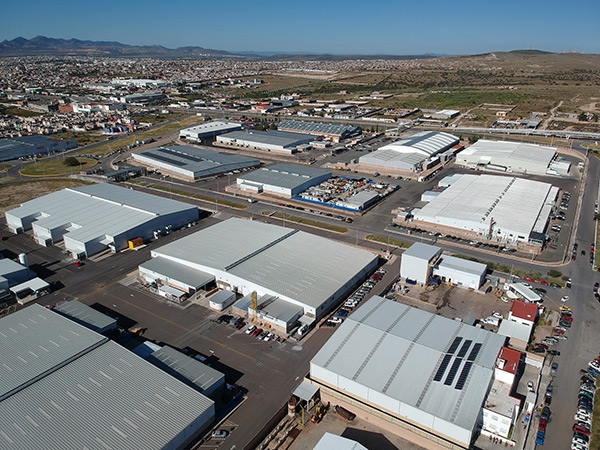More PE firms are turning to Mexico to realize quicker EBITDA growth, as supply chain risk mitigation remains paramount.

By Jay Winkler, Director, Strategic Initiatives, Entrada Group
Private equity set new records in 2021, in terms of both volume and size of deals. But with inflationary pressures at hand and the threat of a recession on the horizon, now is a good time for private equity firms to add some new plays to the gameplan.
Value creation is always a primary objective for private equity firms but the murky economic climate has the potential to make things more challenging than usual. Every investment needs to yield the highest returns possible in as little time necessary. What new approaches are there to maximize value creation under the current circumstances?
One strategy relates to rethinking the global supply chain and production footprint, in an effort to improve customer proximity and speed to market. Nowadays, even midmarket companies that had traditionally focused on a single (or single country) production location are thinking more globally. The concept of production occurring solely in the country where your headquarters happen to be based is clearly outdated.
Phrases like reshoring and nearshoring are becoming more mainstream terms we hear almost daily on the news, as once-obscure topics such as supply chain logistics, globalization of commerce and shipping delays have become kitchen table talk. Themes once discussed largely by economists and journalists are now common discussion for everyday consumers due to ongoing challenges facing today’s interconnected marketplace.
Similarly, manufacturers of all size, not just big household name companies, are examining their global production footprint and nearshoring strategy. Where once such concerns were largely limited to big multinationals.
Because value creation and production location are closely linked, a growing number of private equity firms that have (or plan to have) midmarket-sized manufacturers in their portfolio are evaluating low-cost country (LCC) production alternatives. China no longer looks like the world’s go-to LCC manufacturer, for a raft of well-discussed challenges.
The question is, particularly when looking at a very limited timeframe, which country can accelerate EBITDA growth and maximize value creation?
Mexican manufacturing output hit an all-time high of $232.11 billion in 2021, bolstered in part by a wave of manufacturers moving production there from elsewhere.
What makes Mexico so attractive? The abundant supply of skilled, cost-competitive labor is certainly one factor. Whether due to labor shortages or skills gaps, manufacturers in many places are struggling to meet their staff needs, especially when unpredictable demand spikes call for a wave of hiring. Mexico has that talent. Better yet, it costs less than most other places.
Another compelling feature of Mexican manufacturing is the ability to nearshore production. Facilities in North America are accessible for executive or customer visit within a few hours, versus a day or more of travel to access production locations in Asia. Mexico is also easier to get goods to and from, bringing supply chains close to consumers and helping prevent the problems seen during the pandemic.
Mexico is about more than cost cutting too. Entering the market in Mexico also opens doors to new topline revenue growth, providing access to new markets, customers and potential for the creation of new lines of business. Mexico’s location and labor force give it unique advantages over other countries.
But for private equity firms focused intensely on value creation, establishing production somewhere new looks expensive and time consuming – a slow, risky investment when what private equity firms need right now is speed and certainty.
Taking years to greenfield a new production facility in Mexico could certainly put the brakes on EBITDA. But there is a different approach for private equity to enter Mexico. This alternative turbocharges value creation without excessive risk or long-term commitments, resulting in quicker ROI from capital investment.
Previously, foreign investors that wanted to manufacture in Mexico had to contend with a tangle of legal and logistical challenges to get production up and running (when it was possible at all). It could take years and seven-figure sums before the first shipment ever went out. But not anymore. One reason Mexican manufacturing has been surging of late is because a growing number of companies are taking advantage of an alternate, fast-track route to Mexico.
The Entrada Group exemplifies the new approach to Mexican manufacturing, one designed to streamline entry, accelerate startup and be the centerpiece of a value creation plan. Entrada serves as the legal entity of record for clients, clearing away a major barrier to entry, while providing support to navigate governance, in-country compliance, import/export laws and even labor. Manufacturers have the space to accommodate any production footprint at Entrada’s manufacturing campuses in Central Mexico, with a young and willing workforce ready to put their technical skills and certifications to good use. By providing everything it takes to get started in Mexico (and scale at will), manufacturers can begin production in months not years.
This has some important implications from a value creation standpoint. When it takes significantly less time and money to start production, investments in Mexico deliver stronger returns sooner and more reliably. Enlisting manufacturing support makes startup costs more predictable and therefore easier to plan around. And with manufacturing based in a facility engineered for speed, scale and flexibility, production can adapt to whatever the value creation plan demands. More than just a way to tap into Mexico, manufacturing support experts like Entrada Group make production visible, manageable, and predictable like never before – exactly in line with what private equity seeks.
For private equity firms with a manufacturer (or multiple) in their portfolio, adding operations in Mexico with the support of the Entrada Group could open the door to a quick, profitable enterprise. And for those investors not already involved with manufacturing, setting up operations in Central Mexico offers clear and compelling ways to enhance a portfolio.
Rarely does an investment truly qualify as low-risk and high-reward. But manufacturing in Mexico does the latter and the Entrada Group ensures the former. Private equity take note.

Jay Winkler is Director, Strategic Initiatives, at Entrada Group. Jay works with private equity firms that have, or want to have, manufacturers in their investment portfolio and could benefit from a facility in Mexico. He is often their first step toward an operational footprint in the country. Jay was previously CEO of a US-based global manufacturer with production facilities in Mexico and Europe, and is currently a strategic growth and acquisition advisor.
Scott Ellyson, CEO of East West Manufacturing, brings decades of global manufacturing and supply chain leadership to the conversation. In this episode, he shares practical insights on scaling operations, navigating complexity, and building resilient manufacturing networks in an increasingly connected world.